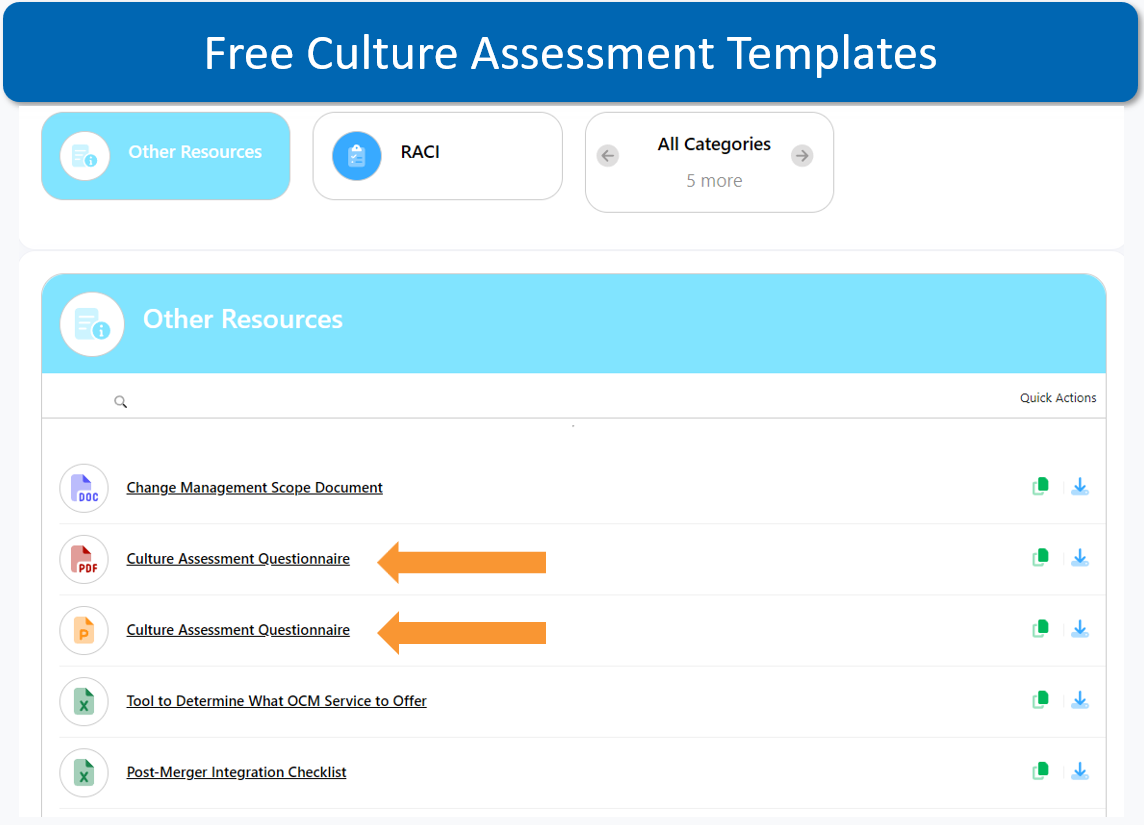How Managers Drive a Culture Change within an Organization
How to Implement Culture Change Towards Innovation
 In today’s dynamic business environment, the ability to adapt and embrace change is not just a competitive advantage; it’s a necessity for long-term success. Organizations that foster a culture of change are better equipped to navigate uncertainties, capitalize on opportunities, and stay ahead of the curve.
In today’s dynamic business environment, the ability to adapt and embrace change is not just a competitive advantage; it’s a necessity for long-term success. Organizations that foster a culture of change are better equipped to navigate uncertainties, capitalize on opportunities, and stay ahead of the curve.
However, implementing and sustaining such a culture requires deliberate effort, strategic planning, and the active involvement of every member of the organization, with managers playing a pivotal role.
Understanding the Need for Change
Before delving into the role of managers in cultivating a culture of change, it’s essential to understand why change is imperative. Industries evolve, technologies advance, and customer preferences shift. Organizations that resist change risk becoming obsolete.
By fostering a culture that embraces change, an organization positions itself to adapt swiftly, innovate, and thrive in an ever-changing landscape.
How Can Culture Facilitate Change?
A culture of change involves a receptiveness and a willingness to support any kind of organizational change within an organization, including a program change, system or technology upgrades, business process changes, employee skill set changes, company expansion, new products, or other changes within the organizational.
To more effectively implement an organizational culture that is receptive to change, the company’s leaders, as well as senior, front-line, and mid-level managers need to be engaged and coached to help facilitate this culture change within an organization. Front-line employees look to their managers and supervisors for direction when it comes to changing the culture within their groups, which starts with each employee changing his or her individual receptiveness to, and willingness to support changes.

Are you wondering how to implement a culture change? The first step is to assess the organization’s current cultures. Get a Free Culture Assessment Questionnaire by signing up for a free tools account on OCMS Portal.
Do you have questions about how can culture facilitate change or how to implement a culture change within an organization? Please reach out and let us know.
Key Components of a Culture of Change
- Open Communication: Transparency is the cornerstone of a culture of change. Leaders and managers must communicate openly about the need for change, the reasons behind it, and the expected benefits. This creates a shared understanding and a sense of purpose among employees about this culture change within an organization.
- Continuous Learning: A culture of change thrives on a commitment to continuous learning. Managers should encourage and support ongoing training and development initiatives, empowering employees to acquire new skills and stay relevant in their roles. This is an important piece of how to implement a culture change of transformation.
- Innovation and Risk-Taking: Managers need to foster an environment where innovation is encouraged, and calculated risks are embraced. This involves creating a safe space for employees to experiment, learn from failures, and iterate on ideas. This is one of the answers to “How can culture facilitate change.” It’s through safe and controlled risk-taking initiatives that new ideas can spark and flourish.
- Agile Mindset: Cultivating an agile mindset is crucial for adapting to change rapidly. Managers should champion flexibility, adaptability, and the ability to pivot when necessary. This mindset shift often starts with leadership exemplifying these qualities.

The Role of Managers in Cultivating a Culture of Change
Managers, leaders, and supervisors play a key role because of the personal relationship they have with their direct reports and employees within the organization. They are closest to the employees who need to adapt their behavior to become more receptive to organizational changes. In many cases, the changes will also affect the work responsibilities and positions of these managers and supervisors.
- Leading by Example: Managers are the torchbearers of organizational culture. To instill a culture of change, managers must embody the values, behaviors, and mindset they wish to see in their teams. When employees see their managers actively embracing change, they are more likely to follow suit.
- Effective Communication: Managers play a central role in communicating the vision for change. This involves not only explaining the ‘what’ and ‘why’ but also creating a narrative that inspires and engages employees. Clear communication helps alleviate fears and uncertainties associated with how to implement culture change within an organization or team.
- Empowering and Involving Employees: Empowered employees are more likely to embrace change. Managers should involve team members in decision-making processes, seeking their input and ideas. Ask them the question, “How can culture facilitate change?” and listen to their take on things. This not only enhances the quality of decisions but also fosters a sense of ownership and commitment.
- Providing Resources and Support: Change often requires new skills and resources. Managers must ensure that their teams have access to the necessary training, tools, and support to navigate the evolving landscape. This includes recognizing and rewarding efforts aligned with the change initiative.
- Feedback and Adaptation: Managers should create mechanisms for feedback and continuous improvement. Regular check-ins, surveys, and forums for open discussion enable teams to express concerns, share insights, and contribute to the refinement of the change process.
For coaching senior leaders and managers on how to implement a culture change within an organization, click here to learn more: Best Coaching Plans & Strategies | Everything You Need to Know
Conclusion – How Can Culture Facilitate Change?
Building a culture of change is an ongoing journey that requires commitment, resilience, and effective leadership. Managers serve as the linchpin in this transformation, influencing the mindset and behaviors of their teams.
By leading with purpose, communicating effectively, and empowering employees, managers can create an environment where change is not just tolerated but embraced as an opportunity for growth and innovation. In the ever-evolving landscape of business, organizations that prioritize a culture of change are better positioned to not only survive but thrive.
FAQ – How to Implement a Culture of Change
How can culture facilitate change?
A culture of change involves a receptiveness and a willingness to support any kind of organizational change within an organization. This improves the organization's competitiveness and innovation.
What are key components of a culture of change?
How to implement a culture change to a more agile organization includes the following components: Open communications, continuous learning, innovation and risk-taking, and an agile mindset.
How to managers help in transitions to a culture of change?
Managers, leaders, and supervisors play a key role because of the personal relationship they have with their direct reports and employees within the organization. They are closest to the employees who need to adapt their behavior to become more receptive to organizational changes. In many cases, the changes will also affect the work responsibilities and positions of these managers and supervisors.
Note: Content on OCM Solution's ocmsolution.com website is protected by copyright. Should you have any questions or comments regarding this OCM Solutions page, please reach out to Ogbe Airiodion (Change Management Lead) or the OCM Solutions Team today. OCM Solution was previously known as Airiodion Global Services (AGS).
External sources: stock.adobe.com, pixabay.com




